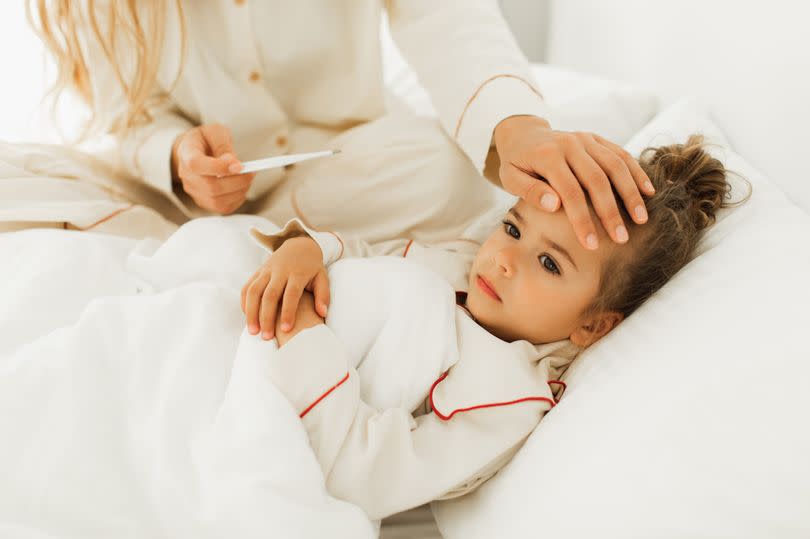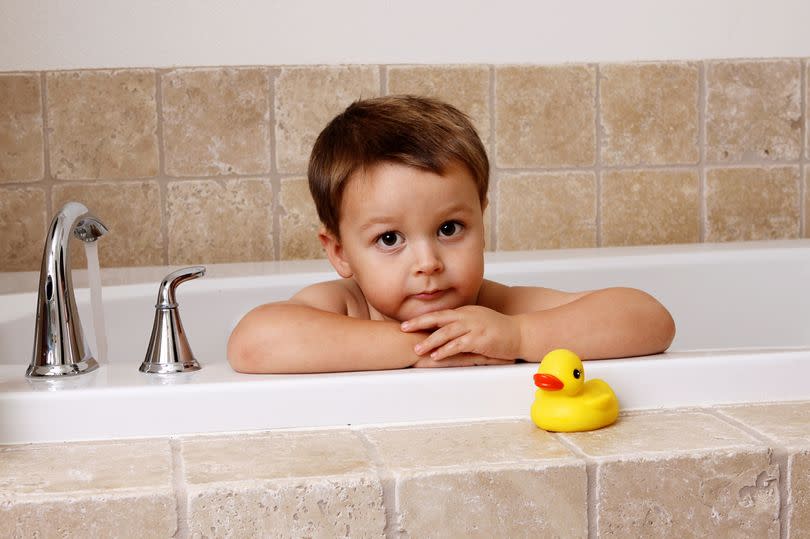Parents warned common bath time item could hospitalise their children

Parents are being alerted to the risks they could be exposing their children to during bath time. It comes as experts have issued a warning about harmful bacteria that could be easily hiding in their favourite bath toys.
This could potentially lead to serious illnesses, some that may end up requiring hospital treatment. The danger is exacerbated if children squirt themselves or others with the water trapped inside these toys, or put them in their mouths.
Although bath time is a highlight of the day for millions of UK children, filled with bubbles, laughter and fun, there are some potential hazards when it comes to using toys. Research has highlighted the potential risks associated with these items due to their design.
Jennifer Shaw, from bathroom suppliers Plumbworld, has offered advice to parents on how to clean these toys to make them safer. She explained: "Bath toys are great fun for kids but they can trap water inside them for weeks or even months.
"This can lead to the spread of germs and bacteria. Scientific studies have shown that this can include Legionella - which can cause the potentially deadly Legionnaires' disease - and some so-called 'superbugs' that can be resistant to drugs."

According to the NHS, Legionnaires' disease is a lung infection you can get from inhaling droplets of water from things like air conditioning or hot tubs. It's uncommon but it can be very serious.
Jennifer added: "E. coli and Staphylococcus aureus, which causes skin issues, have also been found to linger inside them." Symptoms of e. coli include diarrhoea, stomach cramps and occasionally fever.
Staph infections most often affect the skin and can go away on their own, but sometimes they need to be treated with antibiotics. Symptoms of a staph skin infection can include a painful red lump or bump on the skin, hot, red and swollen skin, sores, crusts or blisters and sore, red eyelids or eyes.
One of the main reasons bacteria accumulates is because bath toys often have small holes that allow water to enter but make it difficult for them to fully empty and let the toy dry out, Jennifer says. It is this persistent moisture, coupled with the warm bathroom environment, that creates an ideal breeding ground.
Jennifer warned: "Children often put bath toys in their mouths or squirt each other with them, increasing the risk of exposure to various health issues. These can include gastrointestinal infections, respiratory problems and skin irritations."
However, she also provided guidance on how parents can safeguard their children's health, outlining six key measures to mitigate the risks associated with bath toys.
Seal the Holes:
A hot glue gun will allow you to close the openings and prevent water from entering in the first place.
Regular Cleaning:
Soak the toys in a solution of vinegar and water (1:1 ratio) for at least an hour. Vinegar is a natural disinfectant that can help kill germs. Scrub the toys with a brush to remove any visible mould or slime.
Use your dishwasher:
Many bath toys are dishwasher-safe so running them through a hot cycle can help sanitise them. One key tip is to place the toys in the dishwasher securely to avoid damage.
Bleach solution:
For a more thorough clean, soak the toys in a bleach solution (1 tablespoon of bleach per 4 litres of water) for about 10 minutes. Rinse thoroughly with clean water afterwards to remove any traces of bleach.
Air dry completely:
It's key to remove any residual moisture after cleaning. Place the toys in a well-ventilated area or direct sunlight.
Replace them:
No matter how well you clean bath toys, they will eventually wear out. Don't get too attached to any so you keep them longer than is safe.

 Yahoo News
Yahoo News 
